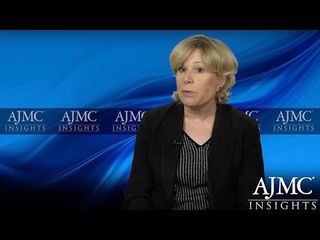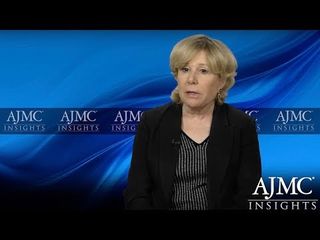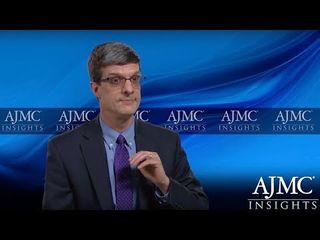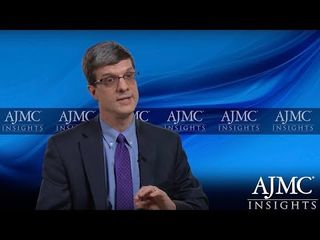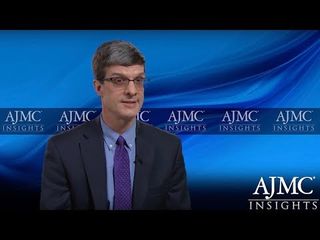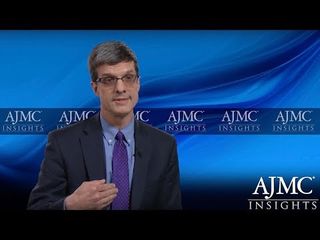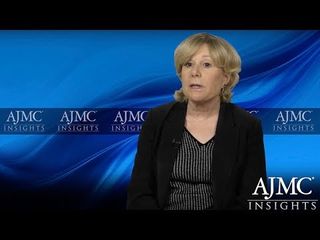
Oncology
Latest News

During the European Hematology Association’s 23rd Congress, held from June 14 to 17 in Stockholm, Sweden, researchers announced that the ELOQUENT-3 phase 2 study, evaluating elotuzumab with pomalidomide and low-dose dexamethasone in patients with relapsed/refractory multiple myeloma, met its primary endpoint in showing a statistically significant, clinically meaningful improvement in progression-free survival.
Latest Videos

More News
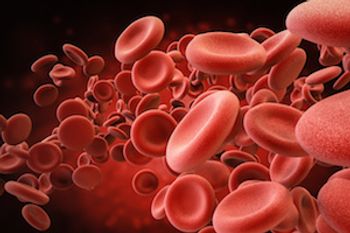
Patients with myelofibrosis who were treated with Janus-kinase (JAK) 1/2 inhibitors have an increased risk for developing B-cell lymphoma. However, researchers believe there is a pre-existing B-cell clone that patients can be tested for before treatment.

In a statement released yesterday, the FDA has announced that it is restricting the use of pembrolizumab (Keytruda) and atezolizumab (Tecentriq) for patients with locally advanced or metastatic urothelial cancer who are not eligible for cisplatin-containing therapy.

Next-generation sequencings tests are just starting to change the landscape for cancer patients, explained Peter Paul Yu, MD, FASCO, FACP, physician-in-chief, Hartford HealthCare Cancer Center.

TAILORx is very good news for an estimated 60,000 women a year, who in years past would have received chemotherapy, possibly risking long-term physical and mental side effects, in addition to experiencing what is now an additional and recognized side effect of cancer treatment: financial toxicity.

For people living with HIV who achieve viral suppression from antiretroviral therapy, there is a reduced risk of developing both AIDS-defining cancer and non-AIDS-defining cancer.

Last month, the Huntsman Cancer Institute at the University of Utah announced the opening of the Huntsman Center for Health Outcomes and Population Equity (HOPE). The research and clinical center is dedicated to preventing cancer and improving health among underserved populations.

While receiving a diagnosis of type 2 diabetes is common for US adults, African American and Latino adults over age 50 who receive a new diabetes diagnosis may have another health issue to be concerned about: pancreatic cancer.

Last week, Bristol-Myers Squibb announced that the China National Drug Administration approved the country’s first immuno-oncology and first PD-1 therapy, nivolumab (Opdivo), for the treatment of locally advanced or metastatic non-small cell lung cancer (NSCLC).

Coverage of the latest clinical updates in cancer research.

Physicians participating in the Oncology Care Model now provider care for approximately 21% of Medicare patients with cancer. An analysis from Avalere Health found that those doctors treat some types of cancers more than others.

Lessons from the first meeting of The American Journal of Managed Care® Population Health Council.

AJMC® Convenes First Gathering of Institute for Value-Based Medicine to Share Best Practices in New Payment Models in Cancer Care

An investigational drug has prolonged survival in patients with a rare and deadly form of acute myeloid leukemia (AML).

Authors from Foundation Medicine explain the regulatory path that led to approval of FoundationOne CDx.

Film is truth 24 times a second, and every cut is a lie – Jean-Luc Godard

Flatiron Health recently conducted a retrospective review of the Oncology Care Model, discovering what's working, what isn't, and what this could mean for the future.

What has really changed in the shift to precision medicine is that it adds a layer of data to each step we go through with the patient, explained James Lin Chen, MD, Ohio State University, and chair of ASCO CancerLinQ Oncology Informatics Task Force.

Cancer patients are agreeing to treatment plans lacking a fundamental understanding of the impacts on their finances, explained Ellen Miller Sonet, MBA, JD, chief strategy and policy officer, CancerCare.

While there isn’t a lot of hard science out yet, there have been benefits seen for both patients and practices when integrated cancer care teams are used, Thomas Asfeldt, MBA, RN, director of Outpatient Cancer Services at Sanford Cancer Center.

Michael Thompson, MD, PhD, FASCO, Aurora Advanced Healthcare, outlines novel therapies being used in the treatment of hematologic malignancies and identified biomarkers for deciding on a treatment approach.
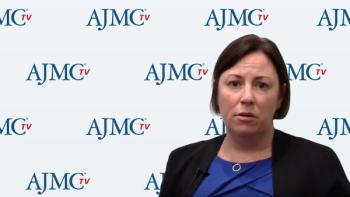
Jamie Bakkum-Gamez, MD, associate professor of obstetrics and gynecology and Gynecologic oncologist at Mayo Clinic, talks about the importance of a patient receiving genetic counseling after an ovarian cancer diagnosis.

Last year, the FDA expanded the indications of rheumatoid arthritis (RA) drug tocilizumab (Actemra) to include the treatment of cytokine release syndrome (CRS) caused by CAR T-cell therapy. Recently, 2 studies have identified another rheumatoid arthritis drug that could be more effective in the treatment of CRS.

The Paxman Scalp Cooling System is now indicated to reduce the likelihood of chemotherapy-induced alopecia in patients with solid tumors, such as ovarian, breast, colorectal, bowel, and prostate cancer.

Results, lessons, and challenges of a local lung cancer screening program within a national demonstration project.

A new study has shown that older female beneficiaries enrolled in Medicare, who undergo mammography screenings, have a greater likelihood of following up with other preventive tests. “It’s encouraging to see that women undergoing mammography may have increased awareness to other preventive screening measures,” said study author Stella Kang, MD, MSc, NYU School of Medicine.



